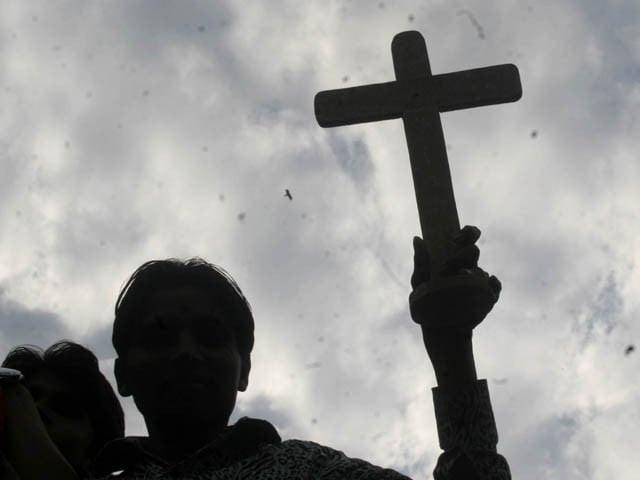Study refutes ‘forced conversion’
Says reports by rights organisations lack primary or empirical data

A study of reports by various civil society and human rights organisations on alleged forced conversions of minorities in the country has found that they were lacking empirical evidence.
Conducted at the Institute of Policy Studies (IPS) by Ghulam Hussain, an anthropologist at the Quaid-e-Azam University (QAU), “Faith Conversions or Forced Conversions: Reality and Rhetoric” study which dug into the popular narrative which suggests that members of minority communities, particularly women and girls, are forcibly converted to Islam in Pakistan.
Noting that the matter has resonated at various forums, local and foreign - particularly the Indian Parliament and United States Commission on International Religious Freedom (USCIRF) reports, Hussain noted in the study that some reports have claimed that as many as 1,000 Hindu and Christian girls are kidnapped, forcibly converted and married of annually in Pakistan.
The baseline study, Hussain said, analysed the content of around three dozen reports of various rights organizations.
He added that these reports are often presented as evidence for alleging that there is an organized and systemic effort to forcibly convert non-Muslims to Islam. However, he contended in the study that these reports lack any primary or empirical data.
Such reports, the study claims, rely on clichés cited from other reports which too have been prepared without any evidence.
At most, he said, some reports had based themselves on anecdotal evidence taken from newspaper reports and political statements but they still do not independently verify the allegations of forced conversions from ‘the supposed victims and so-called perpetrators’.
Claims in these reports are tautological and make circular arguments based on unverified, unverifiable secondary sources, the study noted.
The study also probed the polemics against religious clerics, lawyers, police, and the state which characterizes the content of reports. It showed how the narrative is developed into a charged rhetoric through social media platforms to malign the state and society and the religion of Islam. It further alleged that social media accounts associated with Hindu extremist groups in India are quite active in spreading such allegations.
The study suggested that caste-based divisions, endogamy, and patriarchy are amongst the socio-economic push and pull factors which result in faith conversions, apart from a natural and genuine urge for a more satisfying way of life as religion.
Hussain contended that religious conversions have been taking place at the individual and even collective levels for centuries in Sindh and Southern Punjab - areas where forced conversions are mostly alleged.
“To say that in Pakistan, non-Muslims are forced by religious clerics and the state will be a sweepingly naïve understanding of the very complex phenomena, and will be as flawed as the assertion that free-will conversions are always divinely inspired,” the study emphasizes and calls upon the civil society organizations and responsible citizens to abstain from raising ‘false alarm’ on sensitive issues through rhetoric that tarnishes the image of the country and Muslims without clear justification as it undermines genuine issues of oppressed scheduled castes.
Given the lack of evidence of ‘forced conversion’, the study recommended not passing an anti-conversion law, viewing it as a potentially ‘immature and flawed’ law without the real picture being explored.
Instead, it recommended primary research into the subject to understand the phenomenon and the factors which contribute to it.
Published in The Express Tribune, October 26th, 2020.



















COMMENTS
Comments are moderated and generally will be posted if they are on-topic and not abusive.
For more information, please see our Comments FAQ